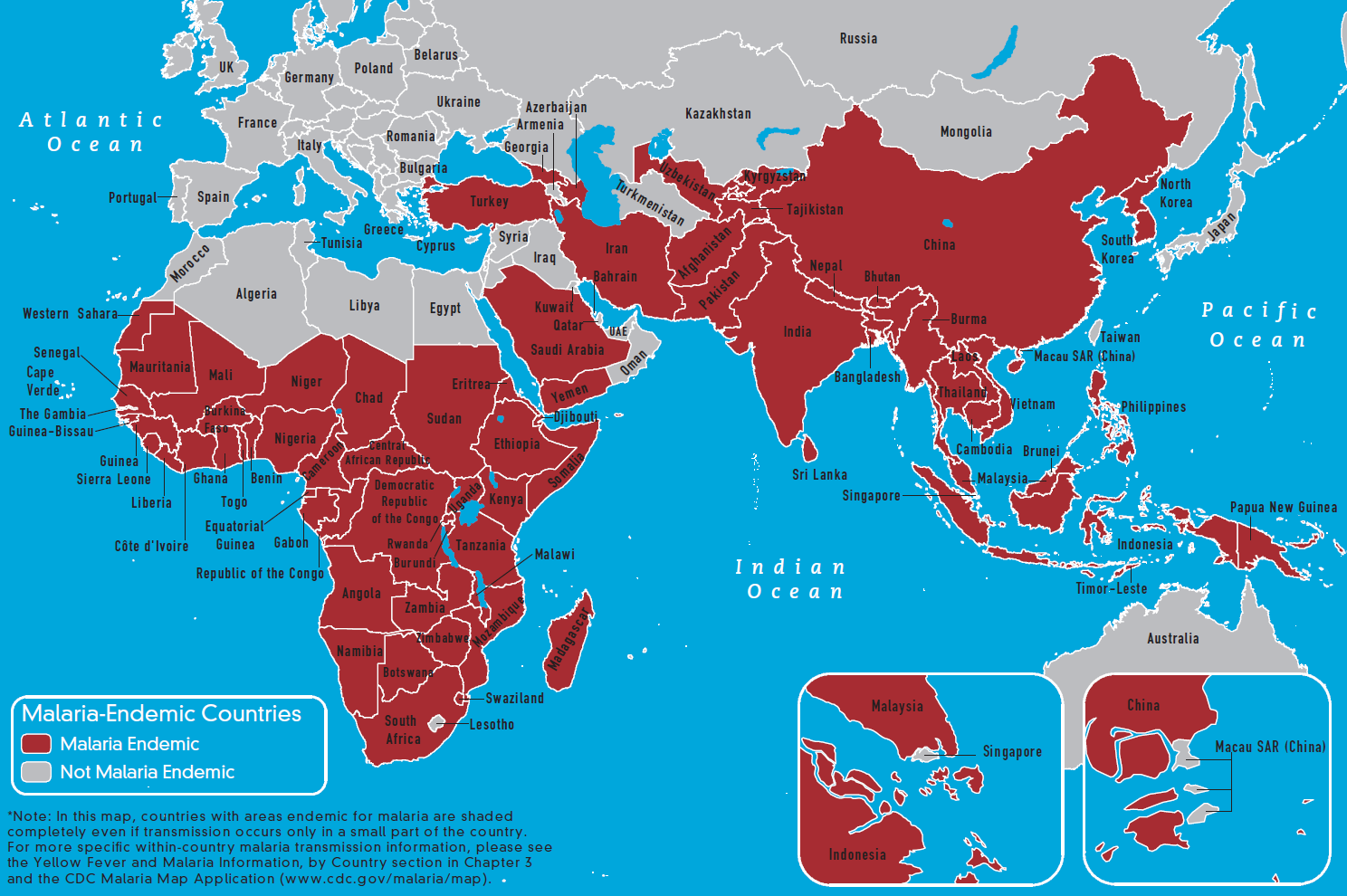Aditya

Welcome to my blog!
Wednesday, October 9, 2013
Finally...a plausible Malaria Vaccine!
Malaria has been one of the most deadliest parasitic linked diseases in the history of man. According to recent statistics, a child will die of Malaria every thirty seconds and over 800,000 are killed each year from the disease. In recent decades, much has been done to prevent the spread of Malaria. UN, NGO, and other organizations have made strong impacts in Sub-Saharan Africa (where over 90% of Malaria cases exist today) through the mass implementation of bed-nets and education of how to prevent mosquito breeding. However, for the billions of dollars spent each year aimed at preventing the spread of Malaria, vaccines and other preventative medication have still not been produced, until today that is!
According to a recent BBC article, the British drug maker, GlaxoSmithKline, is currently waiting regulatory approval for the worlds potential first Malaria vaccine. The drug, tested extensively among children in Africa, showed in its clinical trial great prospect for declining the rates of Malaria. The vaccine known as RTS,S "was found to have almost halved the number of malaria cases in young children in the trial and to have reduced by about 25% the number of malaria cases in infants." The trial itself was very credible and notable as it was as "Africa's largest-ever clinical trial involving almost 15,500 children in seven countries." If the vaccine passes through regulatory boards, it will potentially be adopted by the World Health Organization (W.H.O.) and could possibly be implemented "as early as 2015."
News of a Malaria vaccine is essentially a watershed moment for epidemiologists world wide. I actually sat in on a Malaria focused epidemiologist's lecture (Dr. Steve Meshnick) in which he described how such a vaccine would be groundbreaking for the entire field of public health. The burden Malaria puts on its victims and health systems across the world is truly devastating; therefore, finding ways to eradicate such a disease would prove to be beneficial to all parties all over the world. This is definitely something I will continue to follow throughout the news.
Subscribe to:
Post Comments (Atom)



Citation/link to cite!
ReplyDelete. N.p.. Web. 9 Oct 2013. .
It truly is amazing how far science has come, in the last five years alone. Scientists are finding solutions and preventions to diseases such as Down syndrome, AIDs, and now even Malaria. I am curious, however. Is the drug that you mention from the BBC article solely a prevention drug, or can it silence Malaria in already-afflicted individuals?
ReplyDeleteRegardless of the answer, your point is correct: The fact that there is a drug that can already reduce the harmful effects of Malaria by this much alone is a huge step for global humanity, and for the global wallet. Millions of dollars can now be saved in medication to treat the patients. My question for you however, is how the W.H.O. will pay for this new vaccine? It is unlikely that many afflicted populations (primarily in Africa) have the financial resources/insurance to pay for a vaccine like this one. Is it safe to assume that money that usually goes toward medication will now go towards a vaccine?
Costs and expenses aside, it is so fascinating that diseases that have plagued this generation, and many before ours will one day become completely eradicated.
This is a really impressive study! I am amazed at home many children that used for the clinical trials. That definitely increases the credibility and home for the vaccine. I think Dr. Yeatts in our Public Health class would also be very interested in this article that you are talking about. The prevalence of disease in Africa is one of if not the most influencing factor of keeping most of the people in poverty. If this drug is as effective as it sounds like it will be it will have a tremendous effect.
ReplyDeleteI also have similar questions as Pooja. Will paying for this important vaccine be difficult? She brings up an interesting point of previous malaria drug money now going towards this new one. I will definitely be interested to see the effects of this drug once WHO approves its use.
Overall this is a very encouraging post. The optimism of having the drug approved by 2015 is great. I know it usually takes much longer to get a drug past clinical trials and to general patient use. As usually I have enjoyed your blog. You have very interesting topic that I am excited to learn about.